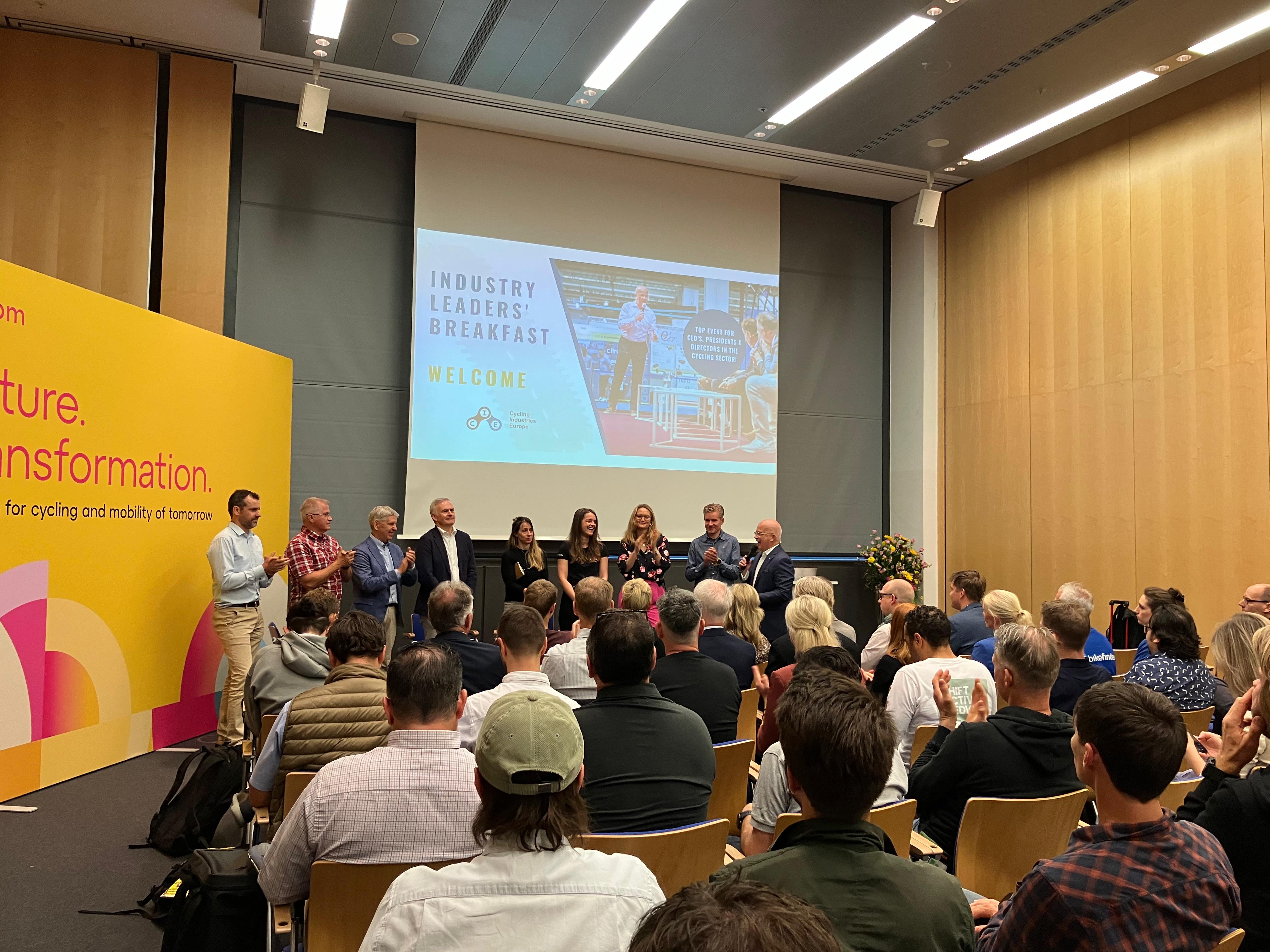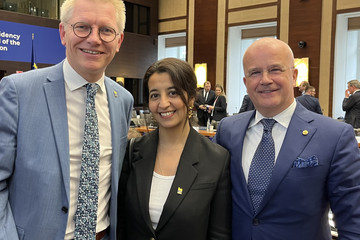Explore more on the page
Cargo bikes for liveable cities and a carbon neutral continent
The first European Cargo Bike and Cycle Logistics Experts Group (CBCLEG) operates under a partnership between Cycling Industries Europe (CIE) and the European Cycle Logistics Federation (ECLF) under the support of the City Changer Cargo Bike Project (CCCB).
This partnership is crucial to connect logistics companies with cycle industry, in particular cargo bike companies, which is key to the main goals of this Expert Group; promoting cargo bike and cycle logistics as an integral component of the EU Cycling Strategy, for the climate-neutrality objective of the Green Deal and of the Sustainable Urban Mobility Policy, advocating to ensure that the sector is in the new Commission’s work programs and disseminating the market profile to encourage the necessary investment in cargo bikes and their after-sales services.

As cities increasingly struggle with traffic congestion, which brings not only air and noise pollution but also has significant impacts on health, the cargo bikes and cycle logistics sector comes in as a sustainable, practical, inclusive and non-congesting alternative for first- and last-mile deliveries, family vehicles and general logistical service provisions. For instance, cargo bikes have the potential to replace vans in 32% of delivery trips and 50% of service trips.
The CBCL Expert Group is led by ECLF Director Richard Armitage and CIE Secretariat is provided by Ayse Sumer.
The CBCLEG members defined the following four priorities for the group:
- Contribution to the development of the first European standard (EN) for cargo bikes;
- Marketing & Communication;
- Cycle logistics services & systems;
- Financing the growth.
These priorities will be tackled in the following three Task Groups (TGs):
TG 1: Standardisation
The European Standardisation Organisation's Technical Committee 333 (Cycles) established a working group on cargo bikes (CEN/TC 333/WG 9 Cargo Bikes). As a liaison partner of the European Standardisation Organisation (CEN), ECLF is represented by Arne Behrensen (cargobike.jetzt) in the WG 9 on cargo bikes, who is also the leader of Task Group 1.
TG 2: Marketing & Communication
The purpose of Task Group 2 starts with Framing – creating a strong, coherent narrative for what cargo bikes can deliver for society, how they can be used and the benefits they bring. To break into the commercial vehicle sector there has to be a unified industry story about cargo bikes as light electric delivery vehicles that can replace vans.
Task Group 2 leader is Uwe Weissflog from Tern-inMotion.
TG 3: Cycle logistics services & systems
Task Group 3 will participate in the debates already under way about future urban logistics, and the role of municipalities in enabling zero emission deliveries to flourish. This work will encompass engagement with the key players in delivery and logistics, getting involved in the discussions about how they will complete their last and first mile drops in future.
Task Group 3 leader is Martin Schmidt from Cycle Logistics CL GmbH.
OBJECTIVES
- Effective sector leadership by facilitating sharing of expertise, collaboration and communication between sectors, which promotes the advance of knowledge and offers wider societal, policy and business benefits;
- Creating a strong, coherent narrative for what bikes can deliver for society, how they can be used and the benefits they bring to increase visibility of the sector at market and EU-levels;
- Predicting market sizes and trends in the consumer domestic, commercial and cyclelogistics markets to encourage funding and market opportunities and overall sector growth;
- Significant advocacy work to make cargo bikes and cycle logistics an integral part of EU mobility strategies and EU Commission’s work programs;
- Developing a European cargo bike standard.
Latest news

09 Jul 2024
The highlights of Eurobike 2024
Once again, CIE had a packed program at the world’s largest bike expo, Eurobike in Frankfurt. There were lots of encounters, meetings, sessions, and…

19 Apr 2024
Our call to the next EU Commission: From zero carbon mobility to a world-class industry
Cycling industry leaders set the agenda for the new European Commission: A world-class European cycling industry and sustainable mobility in 10…

03 Apr 2024
The signing of the European Declaration on Cycling marks a historic milestone for cycling
Cycling Industries Europe’s president Tony Grimaldi gives an industry keynote to 27 EU Transport Ministers
MEMBERS
online monthly meeting every 3rd Tuesday of the month
JOINING THE GROUP
This group is a membership-driven initiative which works together with the support of the CIE Secretariat. Membership is open to all Cycling Industries Europe members and full members of the European Cycle Logistics Federation (ECLF).
Why join the Cargo Bike Cycle Logistics Experts Group?
The European leadership group will help to drive the sector forward. Issues can be discussed and dealt with in an industry wide forum, saving you time and providing greater efficiency. You will benefit from strong advocacy work, increased visibility for your company and for the sector. Work will cover specific topics such active participation in the development of the 1st European Standard on cargo bike and significant advocacy work to make cargo bikes and cycle logistics an integral part of EU mobility strategies and work programmes.






































